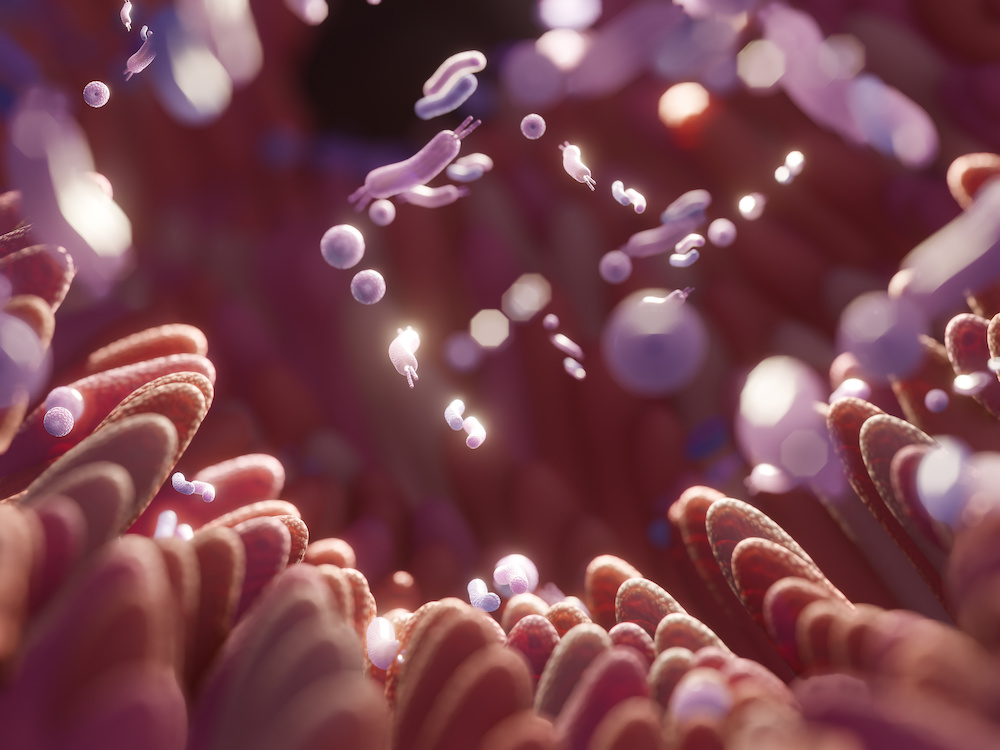Dietitian Blog, MNT Guidelines | Sep 20 2022
What are postbiotics?

The trillions of bacteria living in your gut are better known as your microbiome. The microbiome includes pre-, pro-, and postbiotics. The gastrointestinal tract provides a stable and nutrient-dense environment for these microorganisms to live. In return, humans can receive several benefits from a healthy microbiome including proper digestion and absorption, stimulation of an immune response, maintenance of intestinal barrier integrity, and reduced growth of pathogenic flora.
Strategies to influence the composition of the microbiome, and in turn, a patient’s health have been targeted by researchers. In the past few decades, prebiotics and probiotics have gained attention. Probiotics can be described as live microorganisms that, when administered in adequate amounts, confer a health benefit to the host. Prebiotics are substrates, usually fibers, that are selectively utilized by host microorganisms in metabolism. Unlike probiotics, they are not live microbes. Simply put, they’re the “food” for the microbes living in your gut.
Introducing postbiotics
Microorganisms produce by-products as part of their metabolic process. These metabolites include short-chain fatty acids (SCFA), proteins, peptides, and cell wall components. These by-products, as well as inactivated microbes themselves, are the focus of postbiotics.
While some may regard postbiotics as a new addition to the “-biotics” family, scientists have known about them for years. Recently, the International Scientific Association for Probiotics and Prebiotics formally defined postbiotics, a previously debated topic. They state that a postbiotic is “a preparation of inanimate microorganisms and/or their components that confer a health benefit on the host.” In other words, they are non-living microbes or cell fragments, with or without metabolites, that provide a health benefit. This new definition has helped restimulate discussions surrounding postbiotics.
Why postbiotics?
If we can modulate our microbiome, why focus on postbiotics rather than their pre- or probiotic counterparts? Because postbiotics are not live microorganisms, they’re more stable and have a longer shelf life. Additionally, some research has shown concern that the live microbes in probiotics may be harmful for immunocompromised individuals, critically ill patients, and young children. Postbiotics may be safe to give to these individuals. Furthermore, postbiotics go beyond the gut lumen. The possibility of applying postbiotics to other surfaces, such as skin, is a viable option.
Potential mechanisms of action
There are numerous ways postbiotics could be beneficial to the human body. Some mechanisms currently being studied include:
- Antitumor effects. The SCFA propionate has been shown to selectively induce apoptosis (cell death) in gastric cancer cells. Furthermore, SCFAs may influence the regulation of oncogenes and tumor suppressor genes.
- Accelerated wound healing. While oxytocin is known for a dominant role in inducing uterine contractions and creating emotional bonds, it can also stimulate and accelerate wound healing. Research has shown that bacterial lysates obtained from Lactobacillus reuteri increased the number of oxytocin-producing cells, resulting in elevated serum concentrations in animal models.
- Lipid metabolism and cardiovascular risk. Propionate may help inhibit condensation of cholesterol precursors. Lysates from Lactobacillus were found to reduce levels of triglycerides and LDL cholesterol while increasing HDL cholesterol, by activation of the same therapeutic receptor as the fibrate class of lipid-lowering drugs.
Future research
While the application of postbiotics to the nutrition realm is alluring, there is currently insufficient evidence to understand the complex and pleiotropic effects of postbiotics. As such, no guidelines exist for the safety and efficacy of using postbiotics in nutrition practice. However, with the increased attention to researching the “-biotics” family, more answers are likely on the horizon.
Dietitians On Demand is a nationwide staffing and recruiting company for registered dietitians, specializing in short-term, temporary and permanent-hire positions in acute care, long term care and food service positions. We’re dedicated to dietitians and helping them enhance their practice and excel in the workplace. Check out our job openings, request your coverage, or visit our store today!
References:
Vinderola G, Sanders ME, Salminen S. The concept of Postbiotics. Foods. 2022;11(8):1077. doi:10.3390/foods11081077
Żółkiewicz J, Marzec A, Ruszczyński M, Feleszko W. Postbiotics—a step beyond pre- and probiotics. Nutrients. 2020;12(8):2189. doi:10.3390/nu12082189
Who we are
Dietitians On Demand is the nationwide leader in providing dietitians with jobs they love. If flexibility, competitive pay, a full benefits package, free CPEUs each month and a team dedicated to dietitians sound good to you, apply to our positions today.




